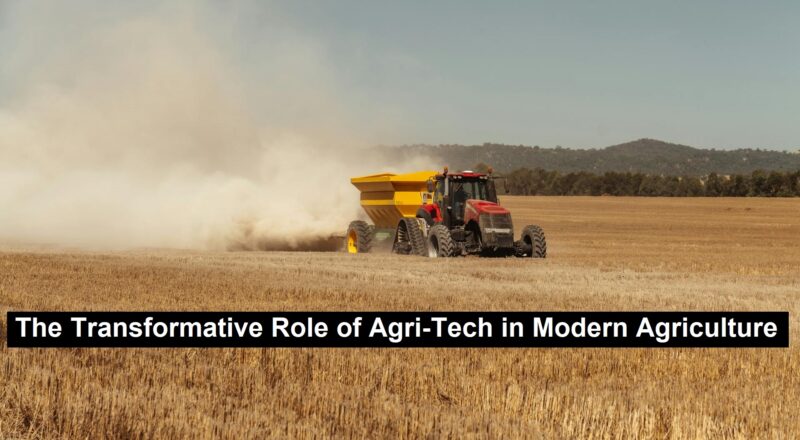The agricultural industry is undergoing a profound transformation, largely driven by the advancements in agricultural technology—often referred to as agri-tech. These innovations are reshaping the way farming is approached, offering groundbreaking solutions that address critical challenges such as resource management, productivity, and sustainability. Agri-tech encompasses a wide variety of tools and technologies, including precision farming, drone surveillance, automated irrigation, and smart sensors. Together, these innovations are empowering farmers to operate more efficiently and produce crops in a more sustainable manner.
One of the most significant benefits of agri-tech is its ability to enhance decision-making. Precision farming, for instance, utilizes data derived from satellite imagery and soil sensors to monitor and manage crops with a high degree of accuracy. This enables farmers to apply water, fertilizers, and pesticides precisely where and when they are needed, thereby reducing waste and improving resource efficiency. Drones, equipped with advanced imaging technology, also provide real-time insights into crop health, allowing farmers to identify early signs of pests, diseases, or nutrient deficiencies, ultimately preventing more severe issues from arising.
Read: Cutting Maintenance Costs in Industrial Machinery: A Strategic Approach
Automation is another pillar of agri-tech that is transforming the agricultural landscape. Automated irrigation systems, driven by weather data and soil moisture levels, ensure that crops receive the optimal amount of water, conserving this valuable resource while promoting healthy growth. Additionally, robotics are becoming integral to modern farming, performing tasks such as planting, harvesting, and weeding with unmatched precision. These machines not only improve operational efficiency but also alleviate the physical demands placed on farmers, allowing for more consistent management of crop production.
The integration of the Internet of Things (IoT) plays a central role in connecting these various technologies. IoT devices enable farmers to collect, analyze, and act on data in real time, streamlining operations and boosting productivity. Through IoT-enabled systems, farmers can remotely monitor their farms, make timely adjustments, and optimize farming practices, ultimately leading to more profitable and sustainable outcomes.
In addition to these digital tools, the physical infrastructure used in agri-tech—such as metal casting for machinery components—is vital to the success of these innovations. Durable and reliable equipment is necessary for the development of advanced tools like drones, smart greenhouses, and automated irrigation systems. Metal casting ensures that the components of these systems can withstand the harsh conditions of modern farming, contributing to their longevity and effectiveness.
As the global population continues to rise, the demand for food will grow exponentially. Agri-tech offers the solutions required to meet this challenge while also addressing critical issues like climate change, resource limitations, and environmental sustainability. The future of agriculture relies on the continued evolution and adoption of these technologies, which will enable farmers to feed the world efficiently and sustainably.
Transformative-Role-of-Agri-TechFor further insights into the role of agri-tech in shaping the future of farming, please refer to the accompanying resource, provided by Hiler Industries.
